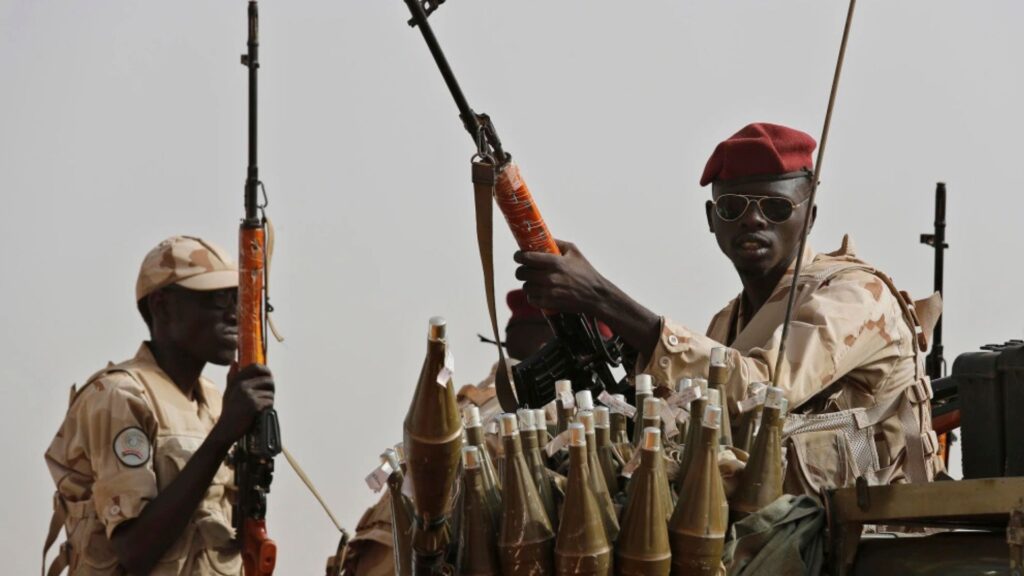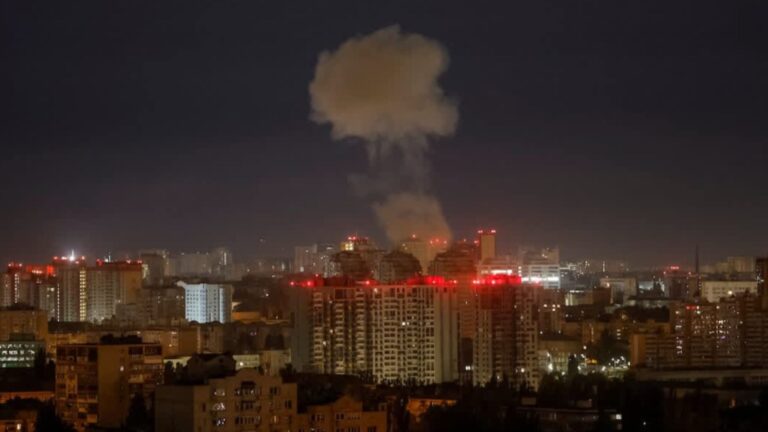
Sudan’s paramilitary Rapid Support Forces (RSF) killed at least 75 civilians in a drone strike that targeted the Al Jamia mosque during dawn prayers at the Abu Shouk displacement camp near El-Fasher on Friday, according to local emergency responders and medical groups. The attack marks one of the deadliest single incidents in months as the RSF intensifies its siege of the North Darfur capital (DW).
The Emergency Response Room at Abu Shouk camp reported that 75 bodies were retrieved from the rubble of the mosque, which collapsed entirely during the strike. The Sudan Doctors Network put the death toll at 43 worshippers, calling the assault a “heinous crime” that violates international humanitarian law. Among the victims were displaced persons from the camp, including women, children, and elderly worshippers (Anadolu Agency).
Strategic Battle for Last Government Stronghold
The drone attack occurred as RSF forces push to capture El-Fasher, the last state capital in Darfur still under Sudanese Armed Forces control. The paramilitary group has besieged the city for approximately 18 months, using earthen barriers to encircle the area and block food and medical supplies from reaching an estimated 260,000 trapped civilians (New York Times).
Satellite imagery analyzed by Yale University’s Humanitarian Research Lab shows RSF forces have likely captured the former UNAMID compound, a strategic military base that served as headquarters for army-allied Joint Forces. The advancement places both the airport and military headquarters within direct firing range of RSF positions, suggesting the siege may be entering its final phase.
UN Reports Surge in Civilian Casualties
Friday’s attack coincided with the release of a UN Human Rights Office report documenting a dramatic surge in civilian casualties during the first half of 2025. The report found that 3,384 civilians died between January and June—representing 80% of all civilian deaths recorded in 2024. Most fatalities resulted from artillery bombardments, airstrikes, and drone attacks in densely populated areas (Al Jazeera).
“Sudan’s conflict is a forgotten one, and I hope that my office’s report puts the spotlight on this disastrous situation where atrocity crimes, including war crimes, are being committed,” said UN Human Rights Chief Volker Turk (Relief Web).
World’s Largest Displacement Crisis
The civil war, which began in April 2023 between the Sudanese Armed Forces and RSF, has killed tens of thousands and displaced nearly 12 million people. The UN describes the situation as the world’s largest displacement and hunger crisis, with 24.6 million people facing acute food insecurity.
Among those killed in Friday’s mosque attack was Dr. Omar Selik, who had recently described to The New York Times the dire conditions faced by civilians in the besieged city, including children forced to eat animal feed due to severe food shortages. His death underscores the targeting of medical professionals and community leaders in what human rights groups characterize as systematic attacks on civilian infrastructure (Xinhua).
International Response and War Crimes Allegations
The Sudan Doctors Network condemned the drone strike, stating: “This horrific crime violates all international and humanitarian laws. The targeting of unarmed civilians constitutes a full-fledged war crime.” The organization called on the international community, the United Nations, the African Union, and all concerned parties to exert serious pressure to stop these crimes and ensure protection of civilians (France 24).
The international community has struggled to respond effectively to Sudan’s crisis, with humanitarian access severely restricted and diplomatic efforts stalled. Friday’s mosque bombing represents a new escalation in attacks on religious and civilian targets, raising urgent questions about international intervention to protect Sudan’s beleaguered population.












I don’t think the title of your article matches the content lol. Just kidding, mainly because I had some doubts after reading the article.